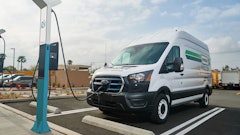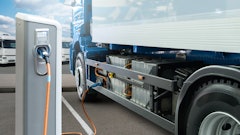
Sustainability has become an imperative focus for retailers. Customers have become increasingly conscious of a product’s impact on the environment and retailers must incorporate sustainable practices into their products and operations.
With sustainability now a key factor in consumer purchasing decisions, retailers must be able to adapt to meet the demands of consumers to gain a competitive advantage. According to Impinj, 86% of supply chain professionals are concerned about meeting their company’s sustainability or carbon-emission goals.
The Need to Go Green
Sustainability has become a priority for retailers, who are searching for solutions to become more environmentally friendly while improving service delivery and operational performance. According to Statista, shoppers worldwide were willing to pay up to an average of 24% more for sustainably produced consumer goods. Due to the increase in consumer demand for a more sustainable brand, retailers must look to implement strategies that help them work towards becoming a greener business.
Previously, sustainable processes might have been viewed as a ‘nice to have’ by retailers. However, with many consumers now willing to spend more for sustainably sourced products, an environmentally friendly approach to operations now delivers a competitive advantage. Furthermore, by adopting the right technology solutions within a retailer’s supply chain, not only can they meet consumer demands and reduce carbon emissions, but they can also significantly streamline operations to create a more efficient, cost-effective business model.
Impinj’s report also found that 40% of respondents claimed that inventory tracking problems were slowing order picking, as shipping and tracking challenges persist in the aftermath of the COVID-19 pandemic. With item-level RFID deployed across a retailer’s supply chain, these issues can be alleviated. Retail brands can gain precise visibility throughout their supply chain resulting in reduced inventory levels while simultaneously improving customer service and increasing sales.
With the right data available surrounding inventory levels, storage, transport and demand, retailers can optimize their operations - minimizing stock bloat while reducing transport and storage costs. Of course, this delivers significant efficiency and financial benefit. However, more importantly, it also reduces the carbon emissions produced during the manufacturing, transportation and storage of items.
RFID in the Supply Chain
RFID technology enables retailers to gain deeper insights into the supply chain and to better manage their approach to sustainability. With the technology in place, retailers can track individual products throughout production and distribution, and easily identify bottlenecks along with other disruptions. This leads to reduced transportation needs, minimized storage requirements, and improved overall inventory management. By streamlining these processes, RFID can help eliminate inefficiencies, reduce unnecessary transportation, and minimize carbon emissions associated with supply chain activities. Ultimately, RFID delivers inventory and supply chain optimization while aiding retailers in their efforts to improve their carbon footprint and adhere to customer demands around sustainability.
RFID can also be used to provide item-level traceability. By tagging each product, retailers can offer customers key information, such as where items are sourced, and the journeys they have been on. Customers can also access data such as the origin of raw materials. This traceability holds retailers accountable for the sustainable sourcing of their products. With full transparency of product history, customers can safely trust the claims of the retailers they are purchasing from, driving further loyalty to retail brands that meet the needs and expectations of their customers.
By leveraging this technology, retail brands have been known to increase sales by more than 3% while reducing inventory by 10%. In this instance, it eliminated the production, waste, shipping, managing, warehousing and transportation of over 20 million items per year. That equates to over 400 shipping containers of products per year that were not transported and managed in their supply chain. The technology delivers real sustainability benefits from using item-level RFID solutions for the next level of inventory management.
Reducing Waste
Manual stock counts can be error-prone and labor-intensive. As a result, retailers can quickly lose track of their stock. Not only does this drive an increase in waste through overordering, but there is an environmental cost associated with the additional manufacturing, transport and storage of excess stock.
However, RFID technology can enhance asset management and utilization of processes to increase inventory accuracy between 93%-99%. Armed with a more effective inventory management practice, retailers can optimize their stock levels, reducing waste along the supply chain and in storefronts. Instead, retailers only manufacture, transport and store the items they know they need. This reduces financial costs, but it also significantly streamlines operations while minimizing the carbon footprint of the retail business.
Driving Sustainability
As retailers continue to work towards a more sustainable future, they must look towards innovative solutions to achieve this. As a result, retailers must shift to focus more on the customer’s values and implement more sustainable practices to meet the needs of the modern-day customer. According to a study by Oney, the ethical and sustainable behaviour of brands and retailers play a key role in the purchasing decision process and consumer expectations. In today’s environment, retailers must align their operations with the demands of customers, who will simply purchase from other brands if their needs are not met.
By adopting RFID as a tool for minimizing waste and carbon emissions, retailers can gain visibility throughout their supply chain, ultimately improving both inventory and environmental performance - resulting in a boost of customer retention and brand loyalty. Through continued innovation and responsible implementation, RFID will continue to play a vital role in creating a greener and more environmentally conscious world.


























